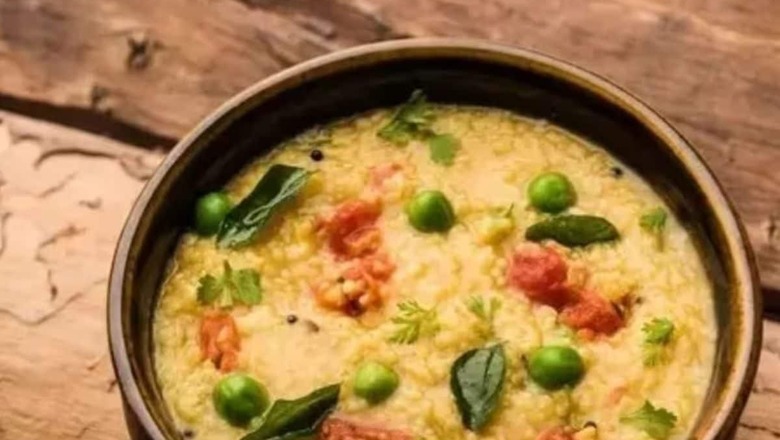
views
Makar Sankranti, an auspicious Hindu harvest festival celebrated across India in January, holds cultural and astrological significance. According to Drik Panchang, the Sankranti tithi for 2024 is set at 2:45 am on January 15. On this day, it is customary for people to indulge in traditional delicacies like Dahi Chuda and Khichdi, and an astrologer sheds light on the reasons behind the preference for Khichdi during this festival.
Astrologer Pandit Manohar Acharya shared insights with News 18 Hindi, explaining the symbolic significance of each ingredient in Khichdi. In astrology, the rice used in Khichdi is associated with the moon, while the pulses are seen as a representation of Saturn. Turmeric, another key component, is considered a symbol of Jupiter. Salt is linked to Venus, and the vegetables incorporated in Khichdi are believed to be related to the planet Mercury. Consuming Khichdi on Makar Sankranti is thought to bring blessings for the removal of health-related ailments.
Pandit Manohar Acharya further elaborates that eating Khichdi helps neutralize the malefic influences of Saturn. Specifically, individuals experiencing the negative effects of Saturn are advised to consume Khichdi on Makar Sankranti to alleviate the impact. The astrologer emphasizes that this practice is believed to counteract Saturn’s malevolent influence.
In addition to astrological reasons, there is a local rationale behind the tradition of eating Khichdi during Makar Sankranti. In many regions, the paddy crop ripens in January, and Chuda and rice are made from these harvested crops during this time.
Makar Sankranti holds special significance for Hindus, who engage in various rituals such as taking baths, making donations, and worshipping to seek the blessings of the divine. Bhopal-based astrologer and palmist Vinod Soni Poddar emphasises the importance of performing puja on this occasion, especially during the auspicious yog formed on this special day. The expert suggests that the auspicious time for Makar Sankranti will be from 7:15 am to 5:44 pm, with Maha Punya Kaal spanning from 7:15 am to 9:00 am, lasting an hour and 54 minutes. Additionally, Ravi Yog is expected to form from 07:15 am to 8:07 am.
Makar Sankranti is not only a time for cultural festivities but also an occasion deeply rooted in astrological beliefs and practices, with Khichdi playing a significant role in the rituals observed on this auspicious day.




















Comments
0 comment